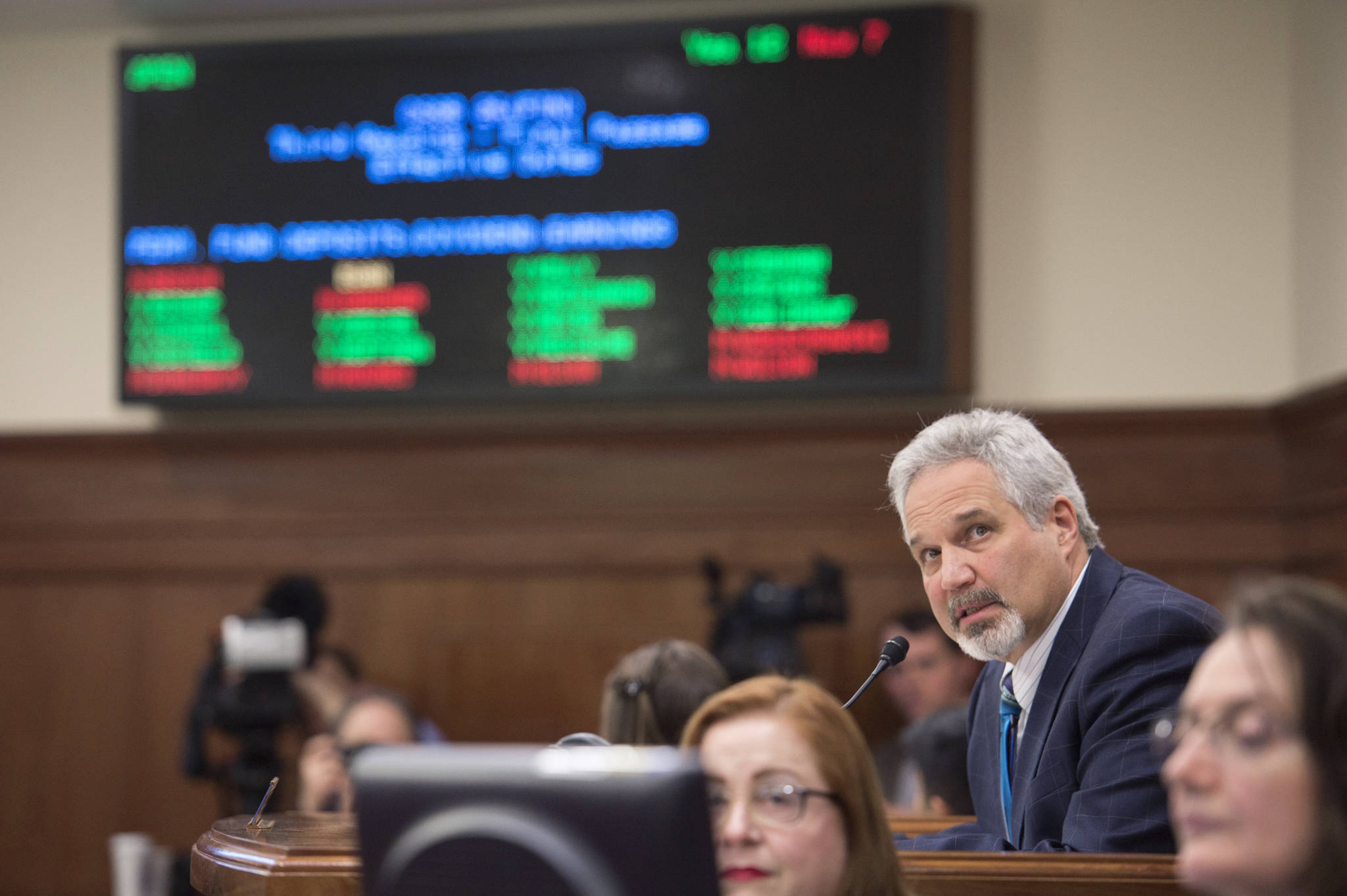Alaska has a $2.7 billion annual budget deficit. It’s the largest of any state other than Illinois.
The deficit is bigger than California’s. It’s bigger than New York’s. It’s even bigger than troubled Kansas.
The biggest Legislative struggle of 2017 will be a straightforward one: How will Alaska cover that deficit?
“I think the biggest thing is the budget, the budget, the budget,” Sen. Anna MacKinnon, R-Eagle River, told the Empire in late November. “Alaska needs to get its fiscal house in order.”
In 2017, arguments over the budget brought Alaska to the brink of a government shutdown before a House-Senate compromise used the Constitutional Budget Reserve to fill the deficit. Barring big cuts, that’s not an option this year: The CBR is expected to contain only $2.1 billion when the current fiscal year ends on June 30.
That means lawmakers will have to make a difficult choice: Use a portion of the Alaska Permanent Fund to cover the deficit, use other savings accounts (currently reserved for things like electrical power or schools), enact stiff new taxes, or severely cut state spending.
More likely, they’ll use a combination of several of these ideas.
Last year, the House and Senate passed different versions of Senate Bill 26, a measure that would divert a portion of the investment earnings of the Alaska Permanent Fund to pay for state services. The bill is now in a conference committee designed to work out the differences between the two versions, but progress in that committee isn’t likely until other things happen during the session.
For example, the House version of the bill requires a state income tax. The Senate last year voted down a House-passed income tax bill, House Bill 115, and leaders of the Senate’s majority caucus say they remain opposed to a statewide income tax.
To flip that example, the Senate version of the bill requires a strict spending limit, something the House’s coalition majority caucus opposes. Any true spending limit would have to be enshrined in the Alaska Constitution, which would require legislative action to propose an amendment. A series of bills have been proposed in that regard.
The idea of further cuts to state services is likely to encounter resistance from lawmakers (principally in the House) who believe the state budget has already been cut enough. There also is a growing belief that the state budget may have already been cut too far in certain sections. In late 2017, Gov. Bill Walker unveiled a “public safety action plan” that includes additional state spending for prosecutors and police. Several lawmakers have endorsed Walker’s call for increased spending on public safety.
The dispute over the budget will affect even bills that don’t directly deal with the budget or deficit.
The 30th Alaska Legislature was in session for 211 days in 2017, more than any other year since statehood. Despite that record, House and Senate passed only 32 bills, the fewest of any Legislature since statehood. The previous low was 39 bills in 2011.
The second year of each Legislative session typically sees more bills pass to the governor and into law, but that’s no guarantee this year. The House majority and Senate majority hold differing views on a variety of issues, and if committees spend a large amount of time on budgetary issues, they may not have time to address other topics.
While many signs point to a long Legislative year and the potential for budget brinksmanship again, one significant factor is working in the opposite direction. This year is an election year, and under Alaska law, legislators may not campaign for office while the Legislature is in session. That provides an incentive for a deal that brings an earlier end to the legislative session.
Furthermore, Speaker of the House Bryce Edgmon, D-Dillingham, has frequently voiced his belief that lawmakers are reluctant to make difficult decisions in an election year. If that turns out to be the case, 2018 may be the year of the budget — but 2019 will be as well.
• Contact state reporter James Brooks at 523-2258 or james.k.brooks@juneauempire.com.

